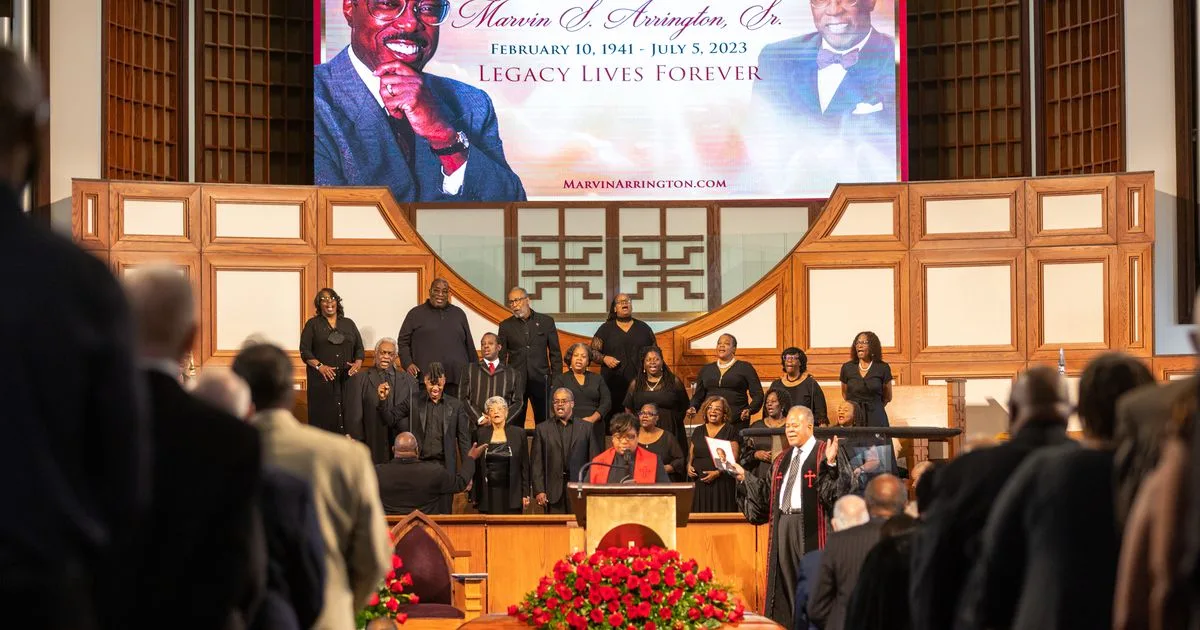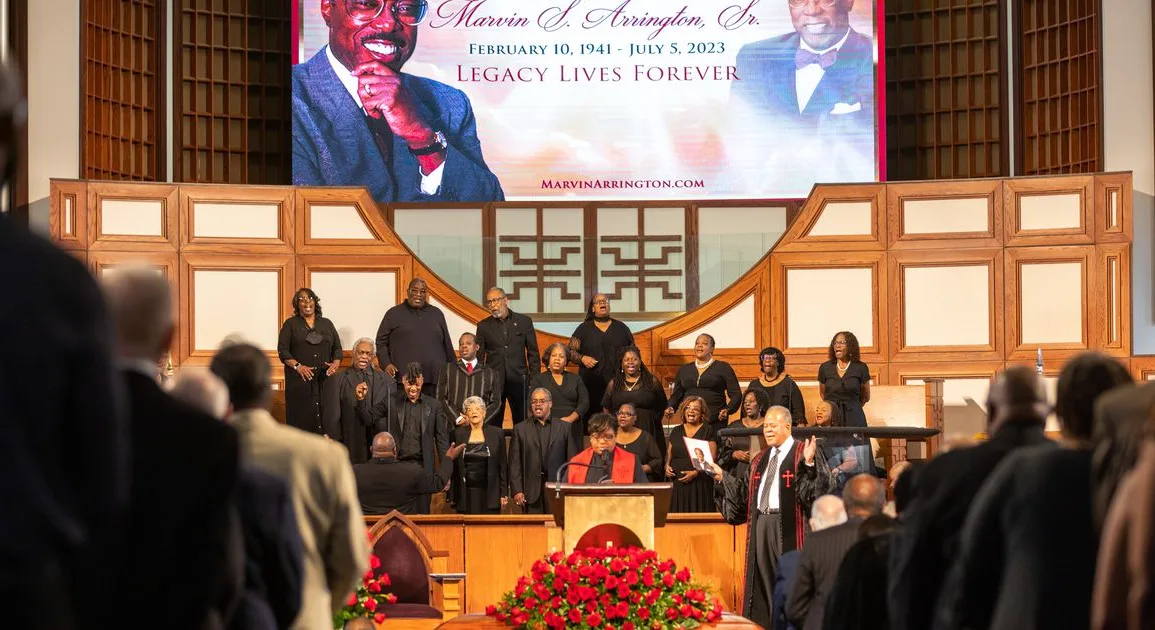
The pews and corridors of Ebenezer Baptist Church were filled with laughter Friday, as hundreds of people watched video footage of Marvin S. Arrington Sr. reflecting upon his decision to use a White’s-only bathroom in the height of segregation.
It wasn’t the first time he broke rules designed to discriminate against Black people. In the video, the longtime Atlanta City Council president and judge said it was important to fight for righteousness, no matter the odds.
“Flex your muscles for the good, not for corruption,” Arrington said.
The significance of those words echoed in the dozens of stories shared by the elected officials, friends and relatives gathered to honor Arrington during his funeral service. He died earlier this month, at age 82.
A native Atlantan, Arrington graduated from Emory University Law School in 1967 as one of the school’s first Black graduates. Two years later, he became the youngest African American elected to the Atlanta Board of Alderman, which sparked the beginning of his tenure of one of the city’s most significant political figures.
“He beared a lot of crosses in Atlanta politics,” said Attorney James L. Felder, Arrington’s Clark College classmate.
Credit: arvin.temkar@ajc.com
Credit: arvin.temkar@ajc.com
Felder called Arrington a “bold, brash and blunt” man who joined the law profession after civil rights icon Donald L. Hollowell defended Arrington and his peers in court — a result of Arrington joining a protest march to the state Capitol.
Years later, Arrington sued the Georgia Bar Association in 1970 with the American Civil Liberties Union (ACLU) to highlight the plight of the many African Americans who had tried unsuccessfully to pass the State Bar exam. Although the suit was lost, the number of African Americans passing the Bar began to rise immediately following the action.
Felder said Arrington’s campaign for Atlanta alderman also inspired others to run for office.
Arrington was reelected to the newly renamed Atlanta City Council in 1974, serving as a council member until 1980, when he was elected to complete the unexpired term of Carl Ware as Council President. Arrington subsequently won four landslide victories and held the position until 1996.
He worked with every mayor from Sam Massell to Bill Campbell during his long tenure on Atlanta City Council.
“We always disagreed about everything but it always worked out,” said former Mayor Andrew Young about his relationship with Council President Arrington. Lauding Arrington’s rise “from the projects to Emory,” Young said Arrington also continued to keep the city afloat after then-Gov. Roy Barnes appointed Arrington to Fulton County Superior Court Judge in 2002.
“Marvin had a unique way of passing judgement,” Barnes said. “He relied upon street sense and he knew the defendants better than anybody I had ever seen.”
Credit: arvin.temkar@ajc.com
Credit: arvin.temkar@ajc.com
Arrington retired from the bench in 2012, but the impact of his political career was consequential.
As one of his first acts in public office, Arrington introduced legislation to take down signs designating “White” and “Colored” water fountains in Atlanta City Hall and on water buckets on the City’s public works trucks. He also led an effort to reassign lockers at the city’s waterworks without regard to gender or race. They were alphabetized instead.
Politics aside, several people present also highlighted Arrington’s phenomenal sense of humor and good nature.
Barnes said it’s impossible to remember Arrington without laughing and smiling. Ware said Arrington used his imperfections to achieve a common good, and that “Marvin knew exactly when to turn it on and when to turn it off.”
Mayor Andre Dickens said Arrington was an extremely funny man who once said his son, attorney and Fulton Commissioner Marvin Arrington Jr., was going to be put on “work study” if the junior Arrington had pledged for any fraternity other than the Kappa Alpha Psi Fraternity.
Ultimately, Dickens said Arrington taught the city many things, including the wisdom that “our disagreements do not make us enemies.”
Arrington’s service was filled with hours of choir performances in celebration of his life.
“My father was this giant of a man,” said Arrington’s daughter, attorney Michelle DuBois Arrington. “He left a true legacy and mark.”
Arrington’s family is establishing a scholarship fund in his name to provide financial assistance for law students. Their goal is to raise $1 million to support students pursuing higher education.
Credit: arvin.temkar@ajc.com
Credit: arvin.temkar@ajc.com



